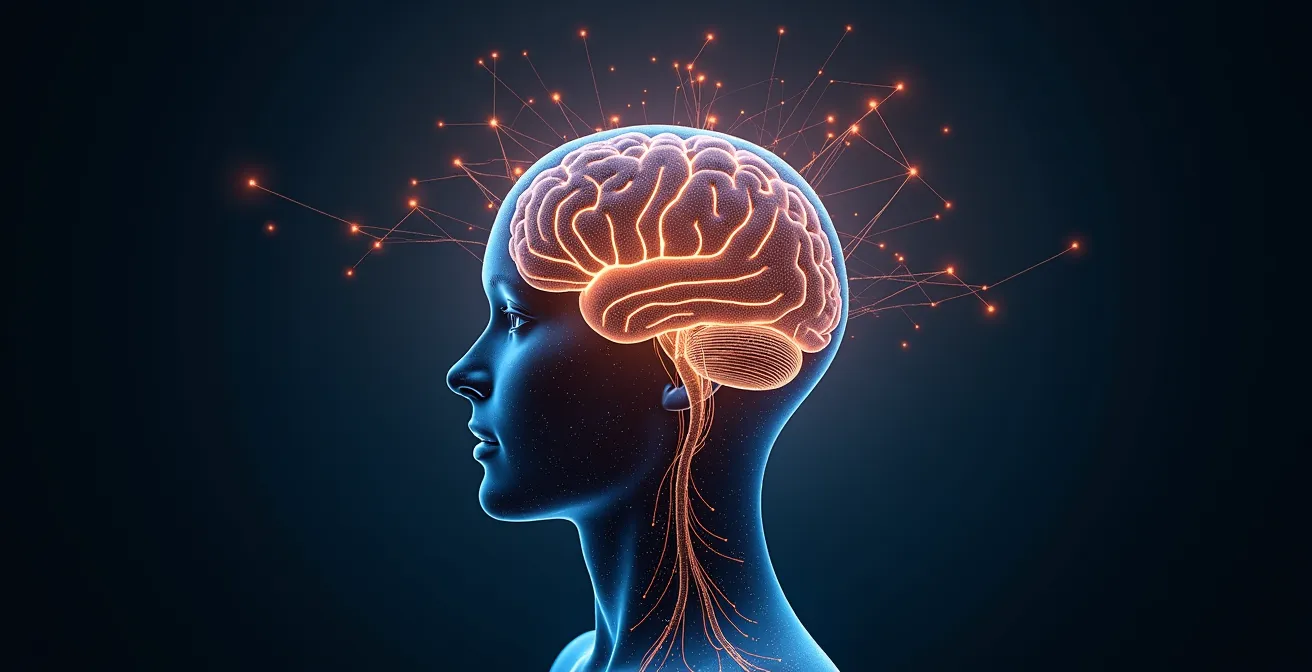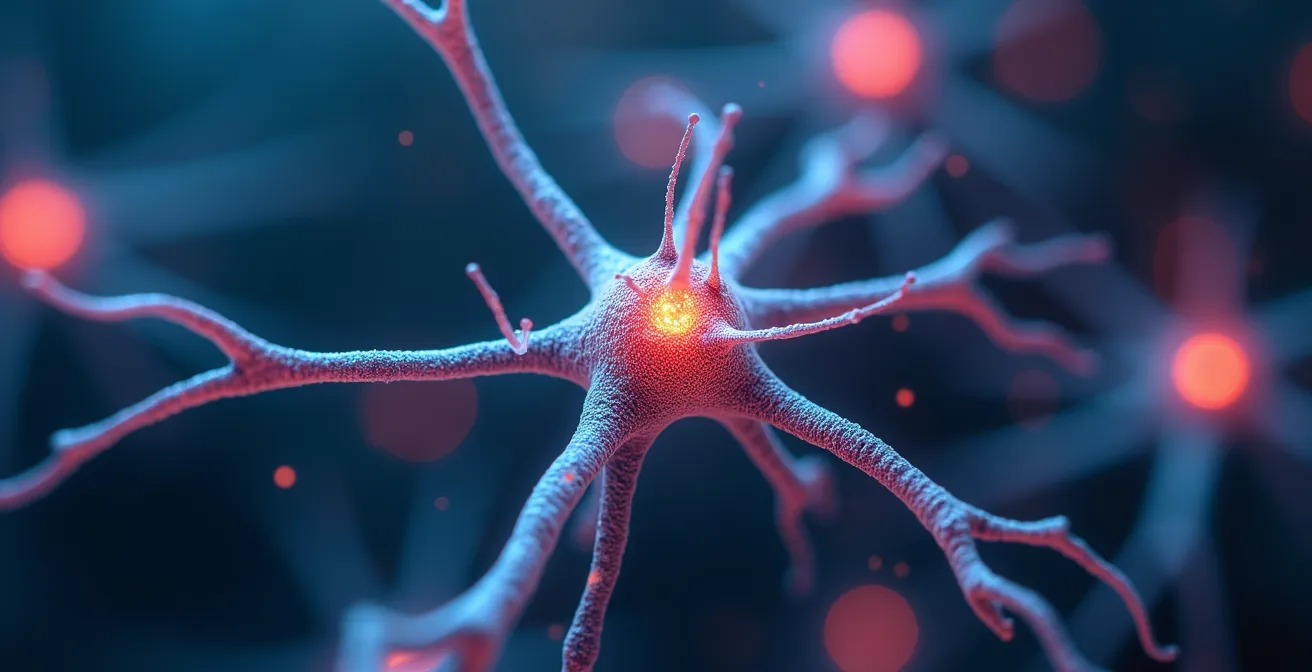
The quest for a sharper mind and enhanced memory has propelled cognitive supplements into a mainstream phenomenon. Many people are turning to these formulas hoping to gain a mental edge, preserve cognitive function, or simply combat everyday forgetfulness. But beyond the promises on the bottle lies a complex biological landscape. The effectiveness of any supplement for memory and concentration is not about a single magic ingredient, but about understanding the intricate ways specific nutrients interact with our unique brain chemistry.
To truly unlock cognitive potential, one must move past the marketing claims and delve into the mechanisms. This involves exploring how these compounds support the brain’s foundational processes, from neurotransmitter synthesis to cellular protection. It’s a journey into the science of synaptic plasticity, bioavailability, and the evidence that separates plausible benefits from placebo effects. Making an informed choice requires a deeper appreciation of the biological pathways at play.
Decoding Brain Supplements: The Core Concepts
- Mechanism Over Magic: Supplements work by supporting existing brain pathways, such as neurotransmitter production and blood flow, not by creating new abilities.
- Ingredient Synergy: Nutrients like Omega-3s, B vitamins, and antioxidants each play a distinct role in brain health, from structural integrity to cellular protection.
- Evidence is Key: Discerning between robust scientific studies and marketing hype is crucial for evaluating a supplement’s true potential.
- You Are Unique: Factors like genetics, diet, and gut health significantly influence how your body will respond to any cognitive supplement.
Memory formation is not a single event but a symphony of electrochemical processes. It relies on synaptic plasticity—the ability of connections between neurons to strengthen or weaken over time. This process is governed by neurotransmitters like acetylcholine and glutamate and nurtured by neurotrophic factors such as BDNF, which supports the growth and survival of brain cells. This activity unfolds within a market that has seen explosive growth, becoming a massive industry built on the promise of cognitive support.
The brain health supplement sector has expanded into a significant global market, reflecting a growing consumer interest in cognitive maintenance and enhancement. In fact, it has grown into a market that reached a staggering US$7.6 billion in 2021. This growth, however, often outpaces the conclusive scientific validation for many of the products offered.
Dietary supplements geared toward improving cognition are a billion-dollar industry that continues to grow despite lacking a solid scientific foundation for their marketing claims.
– H Hersant et al., Over the Counter Supplements for Memory: A Review
Supplements aim to support this neural landscape through several key mechanisms. Rather than being a single-action solution, they often provide the raw materials or create a more favorable environment for the brain’s natural processes. These interventions can be broadly categorized into distinct supportive roles.
Key Mechanisms of Brain Support
- Support neurotransmitter synthesis and function (acetylcholine, glutamate)
- Provide neuroprotection via antioxidants and anti-inflammatories
- Enhance cerebral blood flow
- Improve mitochondrial efficiency within neurons
Ultimately, these products can be divided into two groups: those that support an already healthy brain by optimizing its functions, and those designed to address specific nutritional gaps or mitigate age-related cognitive decline. Understanding this distinction is the first step toward aligning a supplement with individual needs.
The visual representation of this activity is one of immense complexity. Billions of neurons fire in coordinated patterns, forming the biological basis of every thought and memory. Supplements aim to ensure this intricate network has the resources it needs to function optimally.

Each glowing synapse in this network represents a connection fortified by consistent neural activity. The goal of targeted supplementation is to maintain the health of these connections, protect them from degradation, and support the fluid communication that underpins memory and learning.
While the market is flooded with countless formulas, a few key categories of nutrients have emerged as cornerstones of cognitive supplementation, each with a specific role in brain health. These ingredients work through well-defined biochemical pathways to support memory, focus, and overall neuronal function.
What are the best nutrients for memory?
Key nutrients include Omega-3s (DHA/EPA) for cell structure, B Vitamins for energy and neurotransmitter synthesis, and antioxidants like Ginkgo Biloba to protect brain cells from damage.
Omega-3 fatty acids, particularly DHA, are integral structural components of brain cell membranes, ensuring they remain fluid and responsive. B vitamins, on the other hand, act as critical cofactors in energy production and the synthesis of neurotransmitters. Their role in managing homocysteine levels is especially important, as elevated homocysteine is a known risk factor for cognitive decline.
Vitamin B supplementation is associated with slowing of cognitive decline, notably in early intervention populations.
– Z Wang et al., B vitamins and prevention of cognitive decline and incident dementia
Antioxidant compounds sourced from plants like Ginkgo Biloba or various berries offer a protective benefit. They help neutralize oxidative stress, a form of cellular damage that can impair neuronal performance over time. Finally, nootropic compounds represent a class of substances that may directly modulate neurotransmitter systems to enhance focus or mental clarity. The following table breaks down these primary roles.
| Nutrient | Primary Cognitive Role | Key Benefits |
|---|---|---|
| Omega-3 Fatty Acids (DHA/EPA) | Membrane fluidity, anti-inflammatory | Improved memory recall, cerebral blood flow |
| B Vitamins (B6, B12, Folate) | Homocysteine metabolism, neurotransmitter synthesis | Slowed cognitive decline, better energy metabolism |
| Antioxidants (Ginkgo Biloba, berries) | Neuroprotection from oxidative stress | Reduced neuronal damage, enhanced cognition |
| Nootropics (L-Theanine, CDP-Choline) | Modulate neurotransmission | Improved focus, memory enhancement potential |
A balanced diet rich in these nutrients is the foundation of cognitive health. Whole foods provide a complex matrix of vitamins, minerals, and phytonutrients that work synergistically. Supplements are intended to complement this foundation, especially when dietary intake is insufficient or specific cognitive support is desired.

The relationship between diet and supplementation is symbiotic. Foods rich in Omega-3s like fatty fish, or antioxidants from colorful berries, lay the groundwork for a healthy brain. Capsules can then provide a concentrated, targeted dose of specific compounds that may be difficult to obtain in sufficient quantities from diet alone.
The primary challenge for consumers is navigating the space between compelling marketing and verifiable scientific evidence. The regulatory landscape for dietary supplements is fundamentally different from that of pharmaceuticals. As highlighted in a review by H Hersant et al., a critical point is that the FDA does not have the authority to approve dietary supplements’ efficacy before they are sold. This places the responsibility for safety and truthful labeling on the manufacturers themselves.
This gap helps explain why roughly 25% of adults over 50 take brain health supplements, often based more on marketing than on robust evidence. To make an informed decision, it’s essential to understand the hierarchy of scientific proof. Peer-reviewed human clinical trials are the gold standard, whereas preliminary animal studies or anecdotal reports offer much weaker evidence. Many popular supplements lack the backing of rigorous, long-term human studies.
Furthermore, the power of the placebo effect cannot be overstated in the realm of cognitive enhancement. The simple expectation that a pill will improve memory can lead to subjective feelings of improvement, regardless of the supplement’s active ingredients. This psychological component is a powerful confounder in assessing true efficacy.

This phenomenon highlights how much perception and belief can influence our cognitive experience. Recognizing common marketing pitfalls—such as vague promises of “secret formulas” or overhyped benefits based on weak evidence—is a critical skill for any consumer looking to invest wisely in their cognitive health.
Key Takeaways
- Supplements support brain health by enhancing natural pathways like neurotransmitter synthesis and cellular protection.
- Key ingredients such as Omega-3s, B Vitamins, and antioxidants each have specific, evidence-supported cognitive roles.
- The supplement market lacks pre-market FDA approval for efficacy, demanding critical evaluation from consumers.
- Effectiveness is highly individual, influenced by bioavailability, gut health, genetics, and overall lifestyle choices.
Even a scientifically-backed ingredient may not deliver results if the body cannot properly absorb and utilize it. This is where bioavailability comes into play. The specific form of an ingredient—for instance, different forms of magnesium or choline—and its delivery system can dramatically alter its impact. As experts from Jinfiniti point out, bioavailability and formulation significantly impact how well supplements are absorbed and utilized in the body, affecting cognitive benefits.
An emerging area of research is the Gut-Brain Axis, which highlights the profound connection between digestive health and cognitive function. A healthy gut microbiome can influence the production of neurotransmitters and help regulate inflammation throughout the body, including the brain. This connection is increasingly being leveraged in supplement formulation.
Case Study: Gut-Brain Axis Supplements and Cognitive Function
A recent review highlights how probiotics targeting gut health improve cognition by enhancing communication via the gut-brain axis, reducing inflammation, and increasing neurotrophic factors. This demonstrates that supporting the gut can be a powerful, indirect strategy for boosting brain health.
Ultimately, there is no one-size-fits-all solution. Individual variability rooted in age, genetics, diet, and existing health conditions dictates how one will respond to holistic supplements for cognitive function. This underscores the need for a personalized approach and careful consideration before starting any new regimen. The table below summarizes these critical influencing factors.
| Factor | Description | Impact on Supplement Effectiveness |
|---|---|---|
| Bioavailability | Form and delivery system of ingredients | Determines absorption rate and efficacy |
| Gut-Brain Axis | Gut microbiota influence on brain function | Modulates neurotransmitter production and cognition |
| Individual Variability | Age, genetics, diet, health status | Alters response strength and suitability |
| Label Scrutiny | Assessing ingredient quality and dosage | Informs informed purchasing decisions |
Developing a framework for smart purchasing is essential. This means going beyond the front-of-bottle claims and scrutinizing the details. Asking the right questions can empower you to choose a product that aligns with your specific needs and is backed by transparency and quality.
Your Pre-Purchase Checklist
- What is the form and dosage of each ingredient?
- Is the product third-party tested for purity and potency?
- Does the supplement address my specific health and lifestyle needs?
- Are there any known interactions with medications I take?
- Could lifestyle changes be a better first step than supplementation?
By using this informed approach, you shift from being a passive consumer to an active participant in your cognitive health journey. For a broader perspective on well-being, you can discover essential wellness tips.
What is the most important factor when choosing a memory supplement?
The most important factor is evidence-based formulation. Look for supplements that use ingredients in clinically studied forms and dosages and are transparent about their sourcing. Third-party testing for purity and potency is also a critical indicator of quality.
Can supplements alone reverse memory loss?
No, supplements are not a cure for memory loss or cognitive diseases like Alzheimer’s. They are intended to support healthy brain function, address nutritional deficiencies, and potentially slow age-related decline. They are most effective as part of a holistic lifestyle that includes a healthy diet, exercise, and mental stimulation.
How long does it take to see results from memory supplements?
The timeframe for results varies widely depending on the supplement, the individual’s baseline nutritional status, and their overall health. Some people may notice subtle benefits in focus or clarity within a few weeks, while for others, the primary benefit is long-term neuroprotection, which is not immediately perceptible.
Are nootropics and memory supplements the same thing?
The terms are often used interchangeably, but there can be a distinction. “Memory supplements” typically refers to nutrients like vitamins and Omega-3s that support long-term brain health. “Nootropics” can include these but also encompasses substances that may offer more immediate, short-term enhancements to focus, creativity, or motivation.